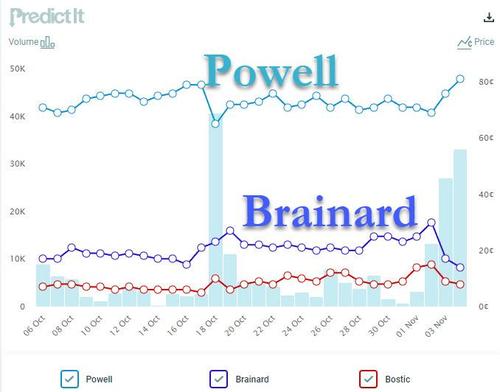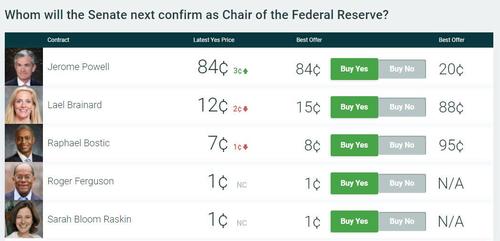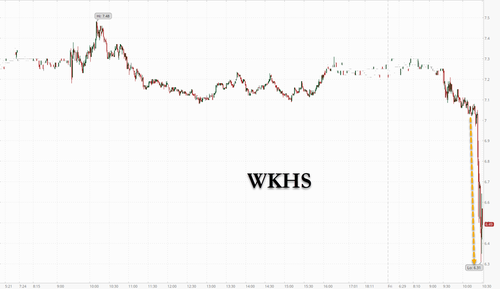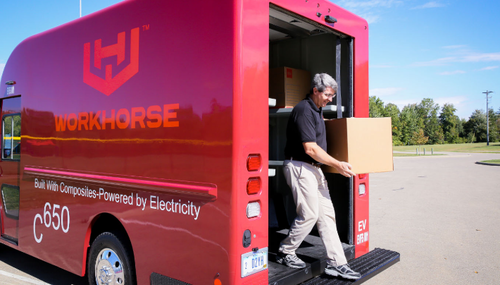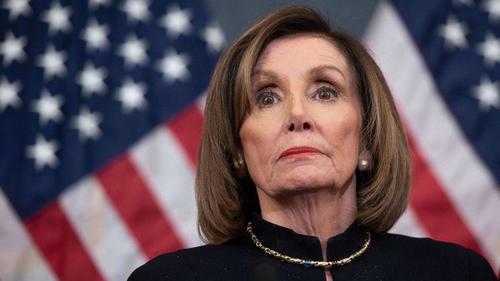
The 120 or so presidents, prime ministers, princes, and other potentates gathered for the United Nations Climate Change Conference (COP26) in Glasgow, Scotland, have now all had their three minutes of climate change fame. President Joe Biden was in attendance, while Chinese President Xi Jinping and Russian President Vladimir Putin were no-shows.
At COP26, signatories to the Paris Agreement on climate change are supposed to submit their updated nationally determined contributions (NDCs), increasing the ambition of their earlier pledges to reduce their emissions of the greenhouse gases (GHGs) that are warming the planet. The Biden administration formally committed the U.S. to reducing its annual net GHG emissions to 50–52 percent below 2005 levels by 2030.
Under the 2015 Copenhagen Accord, the Obama administration’s NDC committed the U.S. to cut its net GHG emissions to 17 percent below 2005 levels by 2020 and to 26–28 percent below 2005 levels by 2025. The Rhodium Group, a consultancy firm, estimates that the U.S. actually exceeded its 2020 target and cut its GHG emissions by 21.5 percent. This was the result of the ongoing switch to cheap fracked natural gas, which produces half the carbon dioxide emissions as coal does in generating electricity. The economic fallout of the pandemic and stifled travel further reduced emissions. President Joe Biden’s new pledge gives the nation five years (2025–2030) to achieve essentially the same scale of GHG reductions that the Obama administration planned to attain after 10 (2015–2025).
Many countries were not so ambitious. China made very minor adjustments to its previous NDC pledge to peak its GHG emissions by 2030 and cut them to net-zero by 2060. China is the world’s largest emitter of carbon dioxide at 10.2 gigatons released in 2020. If current trends continue, its emissions would peak at around 16 gigatons in 2030. Adding in China’s emissions of other GHGs like methane, nitrous oxide, and various fluorinated gases, the country emitted 27 percent of the global total in 2019.
In comparison, the U.S. emitted 6.6 gigatons of GHGs in 2019, of which 5.3 gigatons were carbon dioxide, adding up to around 11 percent of global emissions. If Biden’s NDC benchmarks are implemented, U.S. GHG emissions would fall to 3.3 gigatons by the end of this decade.
Meanwhile, Putin essentially reiterated Russia’s NDC that promises to reduce its GHG emissions to 30 percent below its levels in 1990. In 1990, just before the collapse of the Soviet Union, the Russian Federation emitted about 3.1 gigatons of GHGs. It now emits a bit over 2.5 gigatons, which already amounts to a 19 percent reduction below the 1990 level.
Putin’s plan to reduce Russia’s GHG emissions even that much depends largely on his country’s vast forests absorbing carbon dioxide. One problem: Massive forest fires in Siberia this year likely released nearly one gigaton of carbon dioxide into the atmosphere. Putin did, however, add that Russia would aim for carbon neutrality by 2060.
The Paris Agreement’s aspirational goal is to keep the global average temperature from rising by more than 1.5°C by 2100. According to the U.N. Environment Programme, the nations of the world would need to cut global emissions by 55 percent before 2030 in order to stay on track toward that goal. Climate activists at COP26 have embraced “keep 1.5°C alive!” as a slogan. But given the lukewarm ambitions of some of the world’s biggest emitters, that is very unlikely to happen.
I will be reporting from COP26 next week, and I will delve more deeply into the potential effects on future temperature trends stemming from nations’ pledges to stop deforestation, reduce methane emissions, and shut down coal-fired electric power plants.
from Latest – Reason.com https://ift.tt/31oWnwS
via IFTTT
